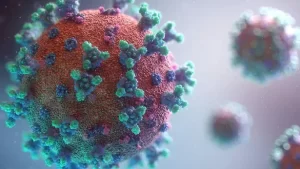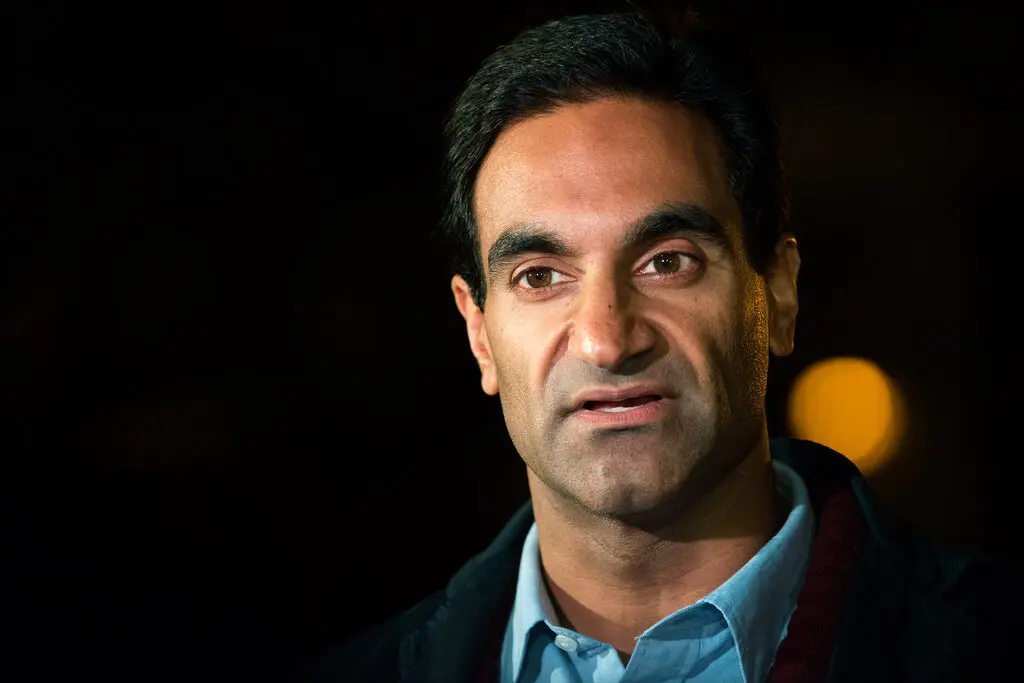In the midst of the pandemic, New York City’s public health officials, like those across the globe, were tasked with one of the most challenging responsibilities of their careers i.e. containing a deadly virus. Dr. Jay Varma, a leading figure in New York’s COVID-19 response, played a significant role in shaping these health policies, particularly around vaccinations.
As COVID-19 swept through the city, measures such as mask mandates, school closures, and bans on indoor dining were enforced to protect the public. His frequent appearances alongside former Mayor Bill de Blasio at COVID briefings underscored his prominence in the fight against the virus.
However, recent revelations about his personal actions during this critical time have sparked controversy and reflection on leadership in public health.
Pandemic Leadership Under Scrutiny
Dr. Varma’s leadership earned him national recognition, particularly when he was involved in advocating for mandatory vaccination rules. His policies had far-reaching impacts, including preventing unvaccinated NBA star Kyrie Irving from playing in New York due to the city’s strict vaccine regulations.
However, revelations have emerged suggesting that while Dr. Varma was urging New Yorkers to follow safety protocols, he was attending private social gatherings that violated the very guidelines he helped establish.
In a video recorded during the pandemic, Dr. Jay Varma acknowledges participating in these gatherings, admitting that he “had to be kind of sneaky about it” given his role. One notable event occurred in August 2020, during which he allegedly hosted a gathering that included eight to ten people, a time when indoor group sizes were restricted to no more than ten individuals in New York. Another incident is reported to have taken place in November 2020, despite the ongoing restrictions.
Public Reactions and Political Backlash
These revelations have understandably sparked strong reactions, especially from politicians and the public. Joseph Borelli, a Republican leader in the New York City Council, expressed outrage, stating that the actions of Dr. Jay Varma are undercutting the public health measures that had been imposed on millions of New Yorkers.
Councilman Robert Holden, a Democrat from Queens, also voiced concern, calling for a full investigation into Dr. Varma’s actions and questioning the validity of continuing legal battles against city workers who were terminated for refusing to comply with vaccine mandates.
The public’s frustration with the double standard displayed by leaders during the pandemic is palpable. Many recall similar instances of high-profile figures, such as Boris Johnson and Gavin Newsom, who were also caught violating their own COVID-19 guidelines. These incidents highlight the growing distrust in public health leadership when leaders fail to adhere to the rules they enforce.
Dr. Varma’s Defense and the Larger Public Health Context
In response to the controversy, Dr. Jay Varma defended himself, stating that he had been targeted by an “extremist right-wing organization” aimed at discrediting public health officials and undermining the nation’s trust in vaccines. He maintained that his role in promoting vaccinations was crucial to safeguarding public health and rejected any efforts to question the effectiveness of vaccines.
Despite these defenses, the revelations have cast a shadow over the credibility of his public health advocacy. While his work undoubtedly contributed to New York’s efforts to curb the spread of COVID-19, the stark contrast between his public messaging and private actions raises questions about accountability and transparency among those in leadership positions during a global crisis.
The Way Forward for Public Health

As we look back at the pandemic and the various decisions made by public health leaders, it’s essential to reflect on the importance of consistency in messaging and action. Leaders play a crucial role in setting an example for the public, and any deviation from this responsibility can undermine trust and hinder public compliance with necessary health measures.
In the case of Dr. Jay Varma, while his actions were a personal misstep, they represent a broader challenge faced by many public figures during the pandemic—balancing personal freedoms with public responsibilities.
Moving forward, the focus must remain on strengthening public health policies, ensuring transparency from officials, and maintaining trust between the public and health authorities. As new variants and ongoing challenges arise, maintaining clear, consistent communication will be key in continuing the fight against COVID-19.
The case of Dr. Jay Varma highlights the complexities of leadership during an unprecedented global health crisis. While his efforts to curb the spread of the virus through vaccination policies are commendable, his personal actions have raised legitimate concerns about hypocrisy in leadership.
The controversy serves as a reminder that during times of crisis, those in positions of authority must hold themselves to the highest standards to preserve public trust and ensure the effectiveness of critical health measures. By maintaining transparency and fostering accountability, we can learn from these past missteps and build a more resilient public health system for the future.





